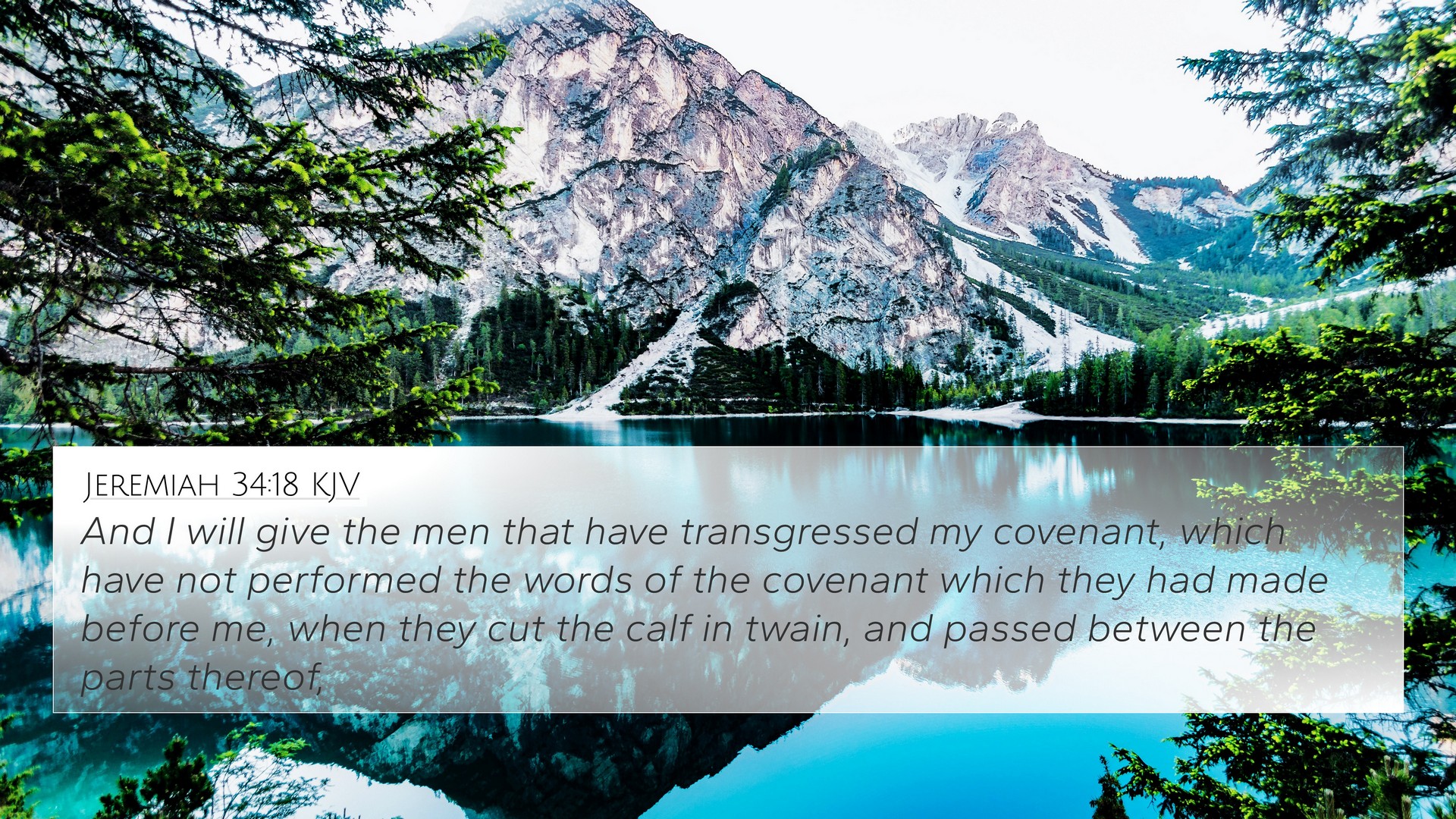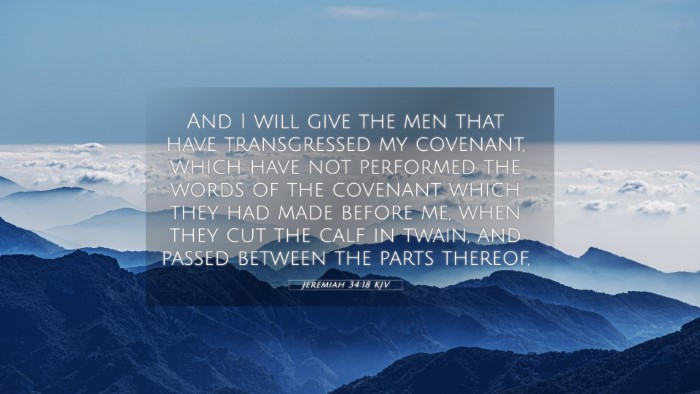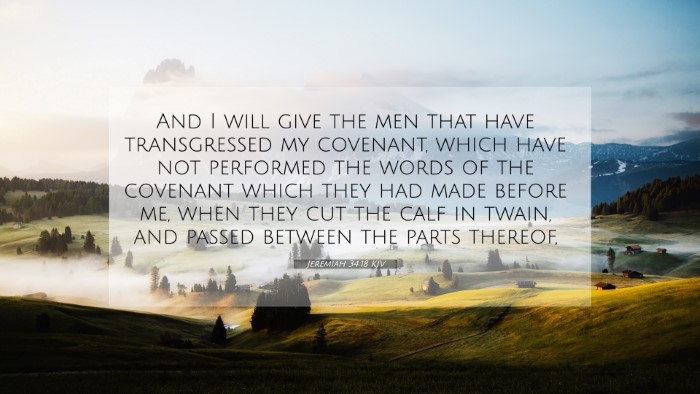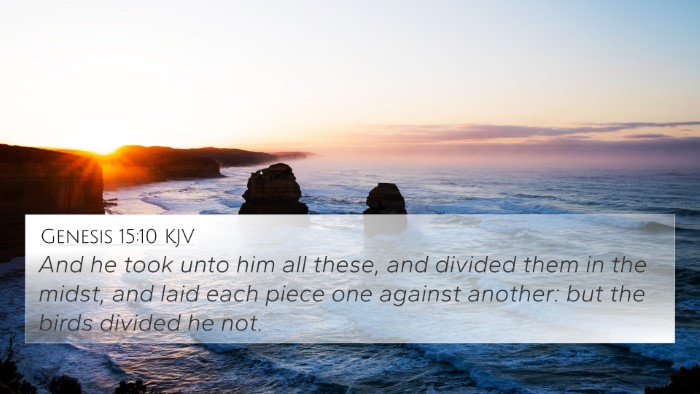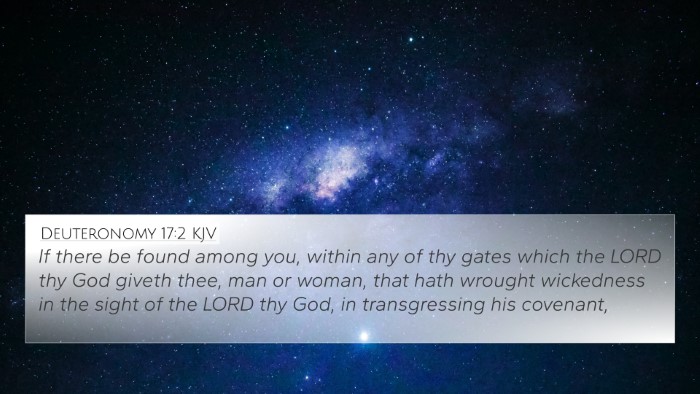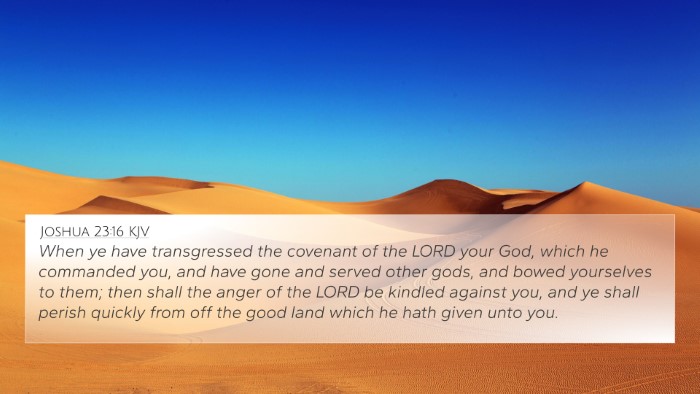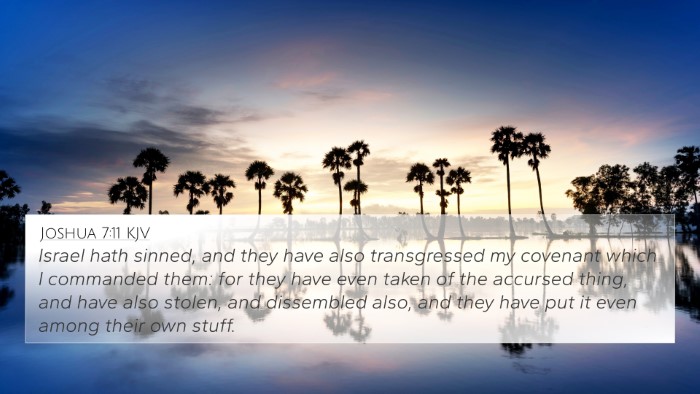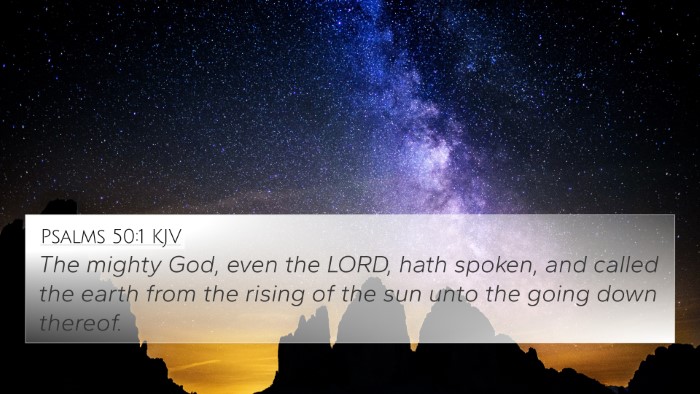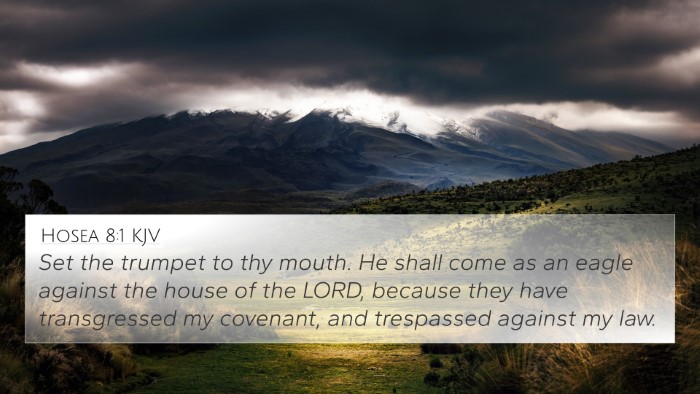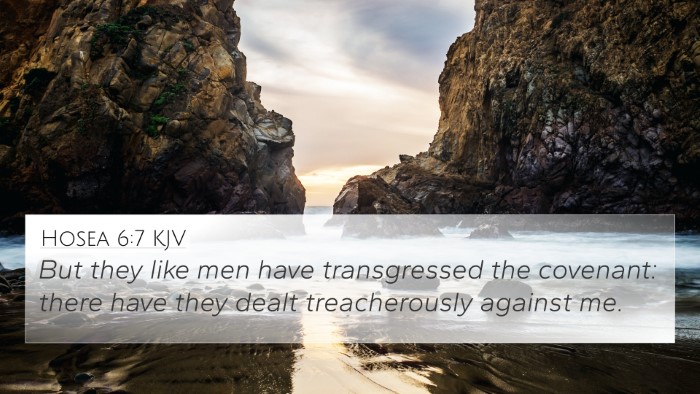Understanding Jeremiah 34:18
Overview: Jeremiah 34:18 states, "And I will give the men that have transgressed my covenant, which have not performed the words of the covenant which they had made before me, when they cut the calf in twain, and passed between the parts thereof." This verse underscores the seriousness of covenant commitments and the consequences of breaking them.
Verse Meaning and Interpretation
The verse speaks to the profound significance of God's covenant with His people. It illustrates the expectations God has for His followers, emphasizing fidelity and the severe repercussions of disloyalty.
Historical Context
Matthew Henry explains that this passage was delivered in a time of impending judgment, shedding light on the faithlessness of Israel. The covenant, represented by the act of cutting the calf in two, symbolizes the gravity of commitments made before God.
Albert Barnes points out that covenants in the ancient Near East were often ratified through symbolic acts such as passing between animal parts, indicating that one was pledging to meet the conditions set forth. This ritual underscores the seriousness of entering a covenant with the Lord.
Adam Clarke adds to this insight by noting that the actions of the people demonstrated a collective breach of faith, which not only affected individual believers but the nation as a whole.
Key Insights from Commentaries
- Faithfulness in Covenant: The commitment made to God must align with action (Matthew Henry).
- Consequences of Breach: Breaking God's covenant leads to dire consequences and divine judgment (Albert Barnes).
- Pursuit of Righteousness: A faithful follower must genuinely seek to uphold God's laws (Adam Clarke).
- The Symbolism of Covenant: Symbolic acts represent deep spiritual truths about commitment to God (all commentaries).
Bible Cross-References
This verse can be cross-referenced with several others to understand its themes better:
- Genesis 15:17-18: God's covenant with Abraham, illustrating the significance of divine promises.
- Exodus 19:5-6: The Israelites' commitment to obeying God's covenant.
- Deuteronomy 29:9: The call to keep the covenant and the blessings that follow.
- Jeremiah 11:3: The warning against breaking the covenant made by the forefathers.
- Ezekiel 16:59: The importance of remembering and honoring covenants.
- Hebrews 10:29: The seriousness of sinning against the covenant in the New Testament context.
- 1 Corinthians 11:25: The New Covenant in Christ's blood, connecting to the broader theme of faithfulness.
Thematic Connections
Cross-referencing the covenant themes found in Jeremiah 34:18 with other passages showcases the continuity of Scripture regarding God's faithfulness and human accountability.
Connections between Bible Verses
By exploring how these verses interlink, readers can gain a deeper understanding of God's nature and requirements for His people:
- Faithfulness: The consistent expectation of fidelity in both Old and New Testament covenants.
- Judgment: The consequences of unfaithfulness outlined in various parts of Scripture.
- Grace: The theme of God’s mercy offered even when His people fail to uphold their side of the covenant.
Tools for Bible Cross-Referencing
To study verses like Jeremiah 34:18 effectively, one can utilize various tools for Bible cross-referencing, including:
- Bible concordance for finding related passages.
- Bible cross-reference guides that provide thematic insights.
- Cross-reference Bible study methods for deeper understanding.
User Intent and Related Questions
If readers are wondering:
- What verses are related to Jeremiah 34:18?
- Find cross-references for understanding covenant themes.
- How do Jeremiah 34:18 and Ezekiel 16:59 connect?
Conclusion
Jeremiah 34:18 serves as a powerful reminder of the importance of covenant faithfulness in our relationship with God. By utilizing cross-referencing tools and understanding the thematic connections within Scripture, one can deepen their appreciation and understanding of the Biblical text.
